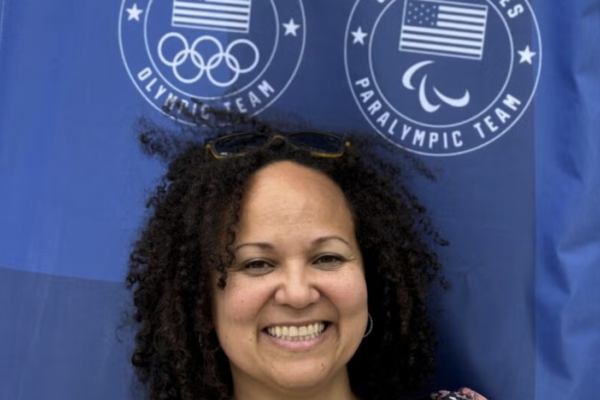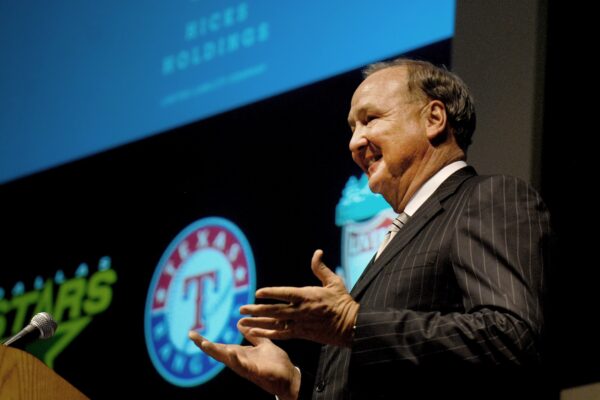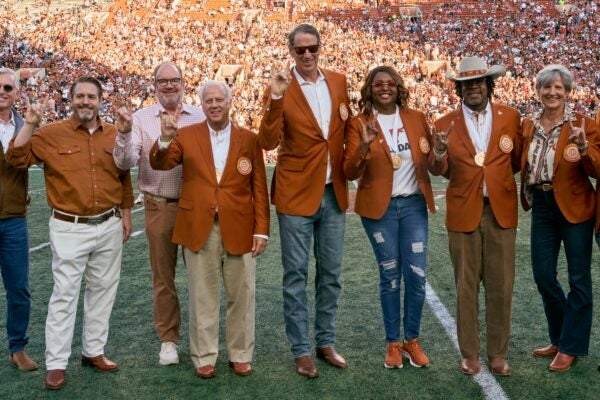Keep Swimming
Mentoring helped first-generation student Melba Tellez, M.S. ’18, stay afloat. Now she’s a beacon for other young women.
by Alberta Phillips | photograph by Robert Houser
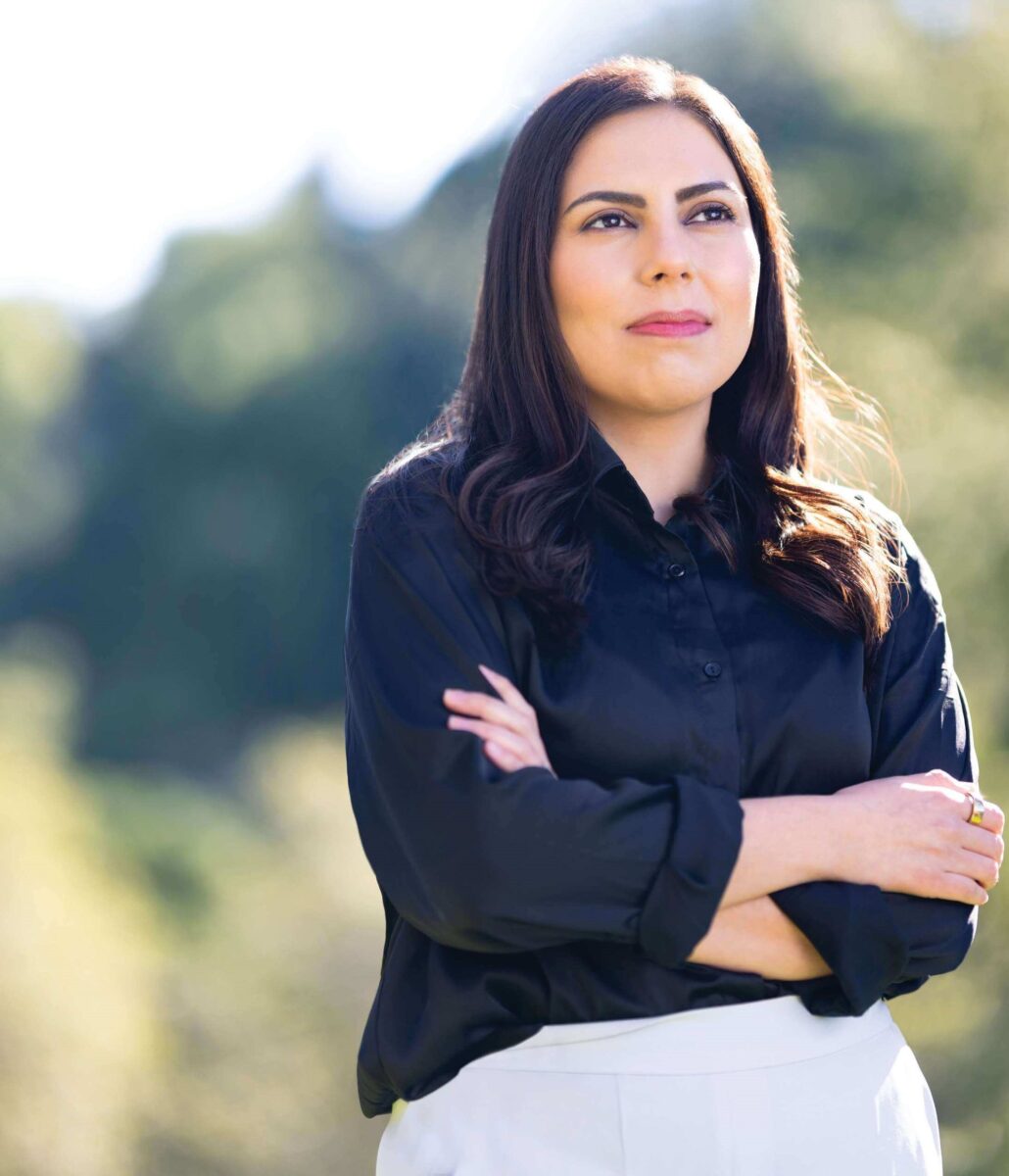
Melba Tellez, M.S. ’18, admits she was “not too thrilled” when, at age 19, she attended a training session for her job at an Austin AT&T call center.
It might have been just another routine training, but when Tellez saw that the speaker, a sales director, was a Latina like her, a spark was lit.
“It was the first time I had ever seen a Latina leading an entire meeting for such a large group,” she says. “I remember thinking, ‘Wow, she’s so eloquent, poised, beautiful, and smart.’”
That was the motivation that propelled Tellez from high school dropout in an entry-level job to master’s student at the McCombs School of Business pursuing a career in tech. Tellez, 30, is now a product marketing manager at Google and founder of a company, Mujeres on the Rise, aimed at helping other Latinas rise in the professional world.
Tellez left that meeting with a vision of what was possible. “‘OK,’ I told myself, ‘That’s what I want to do.’”
Until then, college and a professional career were not in her game plan. Money was tight in her single-parent household in San Antonio during her first nine years and then in Monterrey, Mexico, during the next nine. Her call center wages helped her mother pay the bills.
“My mom ended up losing her job, and because there is no free public education in Mexico, we couldn’t afford for me to keep going to high school,” Tellez says. “She was very hesitant about me quitting and wanted me to keep going. But unfortunately, we just didn’t have the money.”
Tellez, the youngest of three daughters, says her mother wanted to protect her girls and envisioned them living in the same house in a multigenerational family. That’s not unlike many Latinos living in Mexico and the U.S. Her sisters started their families early. Tellez, the youngest, followed her own path into the job market. She was unaware of opportunities or careers outside of the world she knew.
But right after the training session in 2011, Tellez started the journey that would change her life.
“It was the first time that I had ever heard of marketing. I went home that day and I started researching the field. How do I get into marketing? How can I work in this space? That’s when I realized that the first step I needed to take was getting my GED.”
Tellez took prep courses and earned a GED certificate in 2012 while working full time at call centers for AT&T and Citibank. She was ready to set her sights on college, and later, graduate school. Her time at McCombs would lead her to create Mujeres on the Rise, which offers training, support, and mentoring for other aspiring Latinas.
When Melba Tellez was a child, a future involving college and a professional career seemed unlikely. She had to quit high school after her mother, Isabel Guzman, lost her job. But Tellez, 30, is now a product marketing manager at Google and founder of Mujeres on the Rise, a company that helps Latinas ascend in the professional world.
Family photos courtesy of Melba Tellez
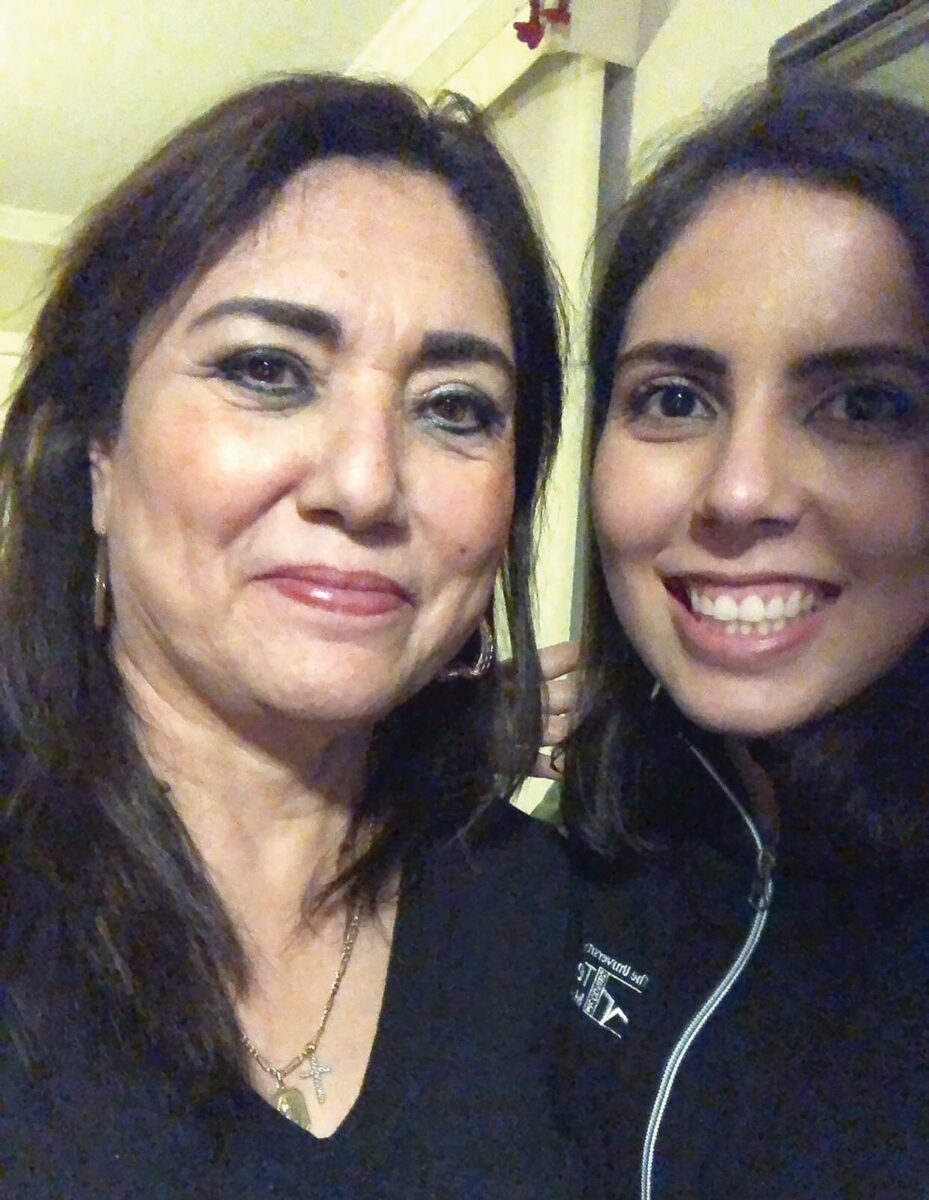
Mentoring Comes in Different Ways
Although Tellez didn’t have what she called “official mentors,” people in key positions provided critical support. They taught her the value of mentoring and community. She says they made the difference between staying the course and losing her way.
Doors that might have stayed closed cracked open when she began learning
about opportunities — and went after them.
“Mentoring is important to me because I honestly don’t feel like I would have gotten to where I am today without people supporting me,” Tellez says.
Before she attended that pivotal training session, “I was living my life according to what I knew was possible,” Tellez says. “When I finally
started branching out, I saw that there’s a lot of things I could do, but it takes the right people to help you get there, especially when you are
part of an underserved or minority group. You don’t know what you don’t know.”
Her great-aunt encouraged Tellez to “dream big.” She was a nurse and had gone to college; she urged Tellez to do the same and not be hamstrung
by her family’s finances.
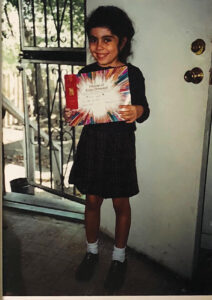
Tellez enrolled first in her local community college, Northwest Vista College in San Antonio and after that, at Texas A&M University-
San Antonio, earning a bachelor’s degree in communications in 2017.
That is where she met the mentor who helped shape her future. Brian Brantley, an associate professor in the Department of Communications
at Texas A&M University-San Antonio, supported Tellez’s desire to reach further and go to McCombs. He encouraged her to continue her education and provided key advice about the application process, Tellez says.
“We always like to keep our eyes open for those students who not only want to go to graduate school, but really are shaped the right way for that. Melba definitely was one of those,” Brantley recalls. He says he strives to steer
students from his Latino-serving university to selective institutions such as McCombs for advanced degrees.
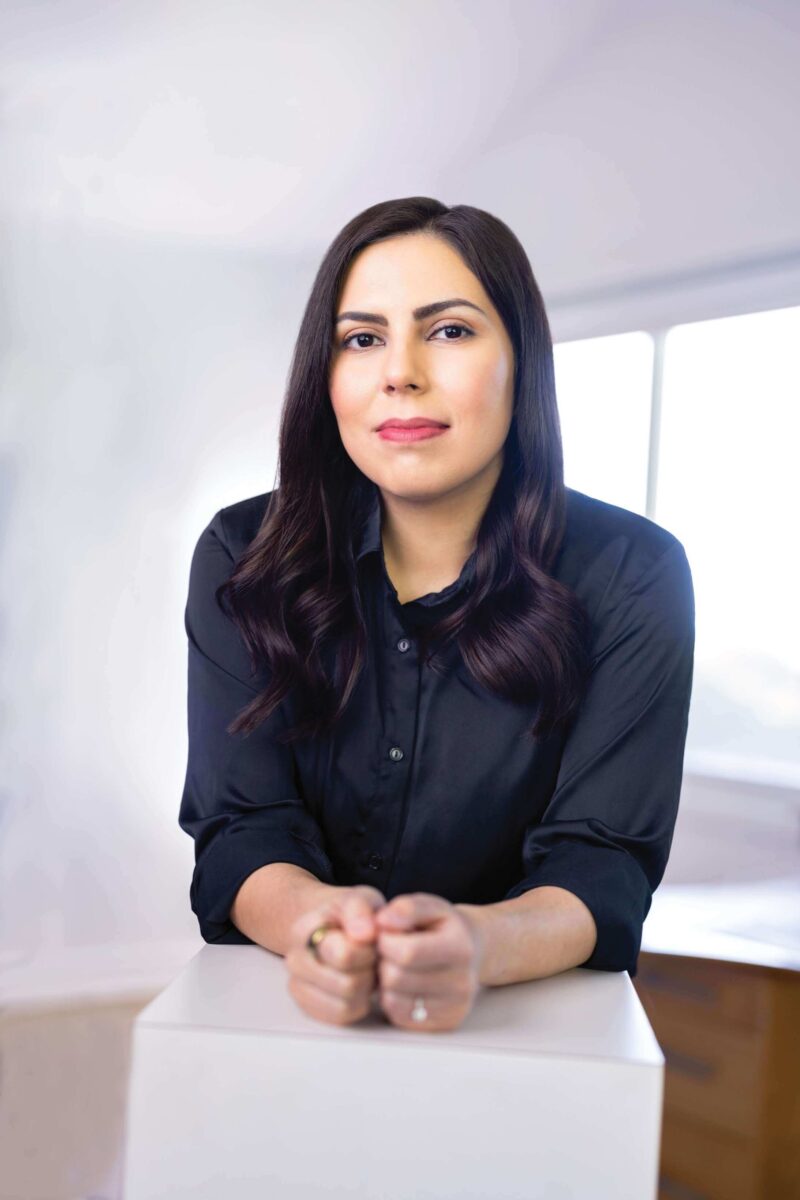
Overcoming Challenges at McCombs
Despite earning a bachelor’s degree, Tellez was unable to shake doubts about whether she as a first-generation college student could make it at McCombs. She says she saw few women who looked like her, and her feelings of inadequacy grew as she learned many classmates had graduated from elite schools.
“I felt like I couldn’t keep up. I felt like everybody was so much smarter than I was,” Tellez says. “There were so many things my peers learned in high school that I never did because I learned just what was necessary to
pass the GED.”
As Tellez discovered, sometimes peers can be mentors. She found kinship with another Latina student, also a first-generation college graduate. Together, they weathered the ups and downs of what might otherwise have been a lonely struggle.
The classmate, Rebecca Salazar, M.S. ’18, describes unique challenges Latinos face at McCombs and, no doubt, other graduate schools because of generational and cultural disparities. Just 5.9% of Latinas in the country
hold master’s degrees, according to 2021 data compiled by Education Trust, and the figures were even lower when she and Tellez enrolled in graduate school.
“Being a first-gen student and being in grad school at a time when just 4% of Latinas in the U.S. had master’s degrees — there really wasn’t a blueprint,” says Salazar, 30, who is a copywriter for University Marketing and Communications at UT Austin. In all, Latinos make up 10% of students in McCombs’ graduate programs, according to 2021 figures.
“You have to find things out on your own, and you have to reach out for help,” Salazar says.
She adds: “Other students in the program seemed to know what was going on. They had family members or parents who had gone to grad school. So, it was a lot of us having to lean on each other and figure things out.
“It’s rare to find someone that you can really see, relate to, and that was the really great thing about Melba. I was like, ‘Well, this person really understands me.’”
Keep Swimming
Perhaps most challenging, Tellez says, was a first-semester finance course. She had never taken introductory courses in statistics or finance. Her instructor was Sanford “Sandy” Leeds, a professor of instruction in the McCombs finance department.
“I remember walking into his office one day and I literally told him, ‘I feel lost. I feel like I need to drop out. I feel like I’m swimming against the tide,’” Tellez recalls.
“He just looks at me and says, ‘Well, Melba, keep swimming then.’”
That resonated. She kept repeating the phrase – “Keep swimming. I have to keep swimming.”
The waters continued to be choppy, she says, but those words helped still her doubts, steeling her determination to finish graduate school. Eventually, Tellez says, she knew she was OK. The words that motivated her, Leeds says, underscore what teachers can do — even in brief
encounters with an overwhelmed student.
“This is a good reminder that we can have a positive impact, and it’s a great thing,” Leeds says. “I went back and was looking at grades from that semester. She did fine. I think it’s just that she needed to realize that she could do it.”
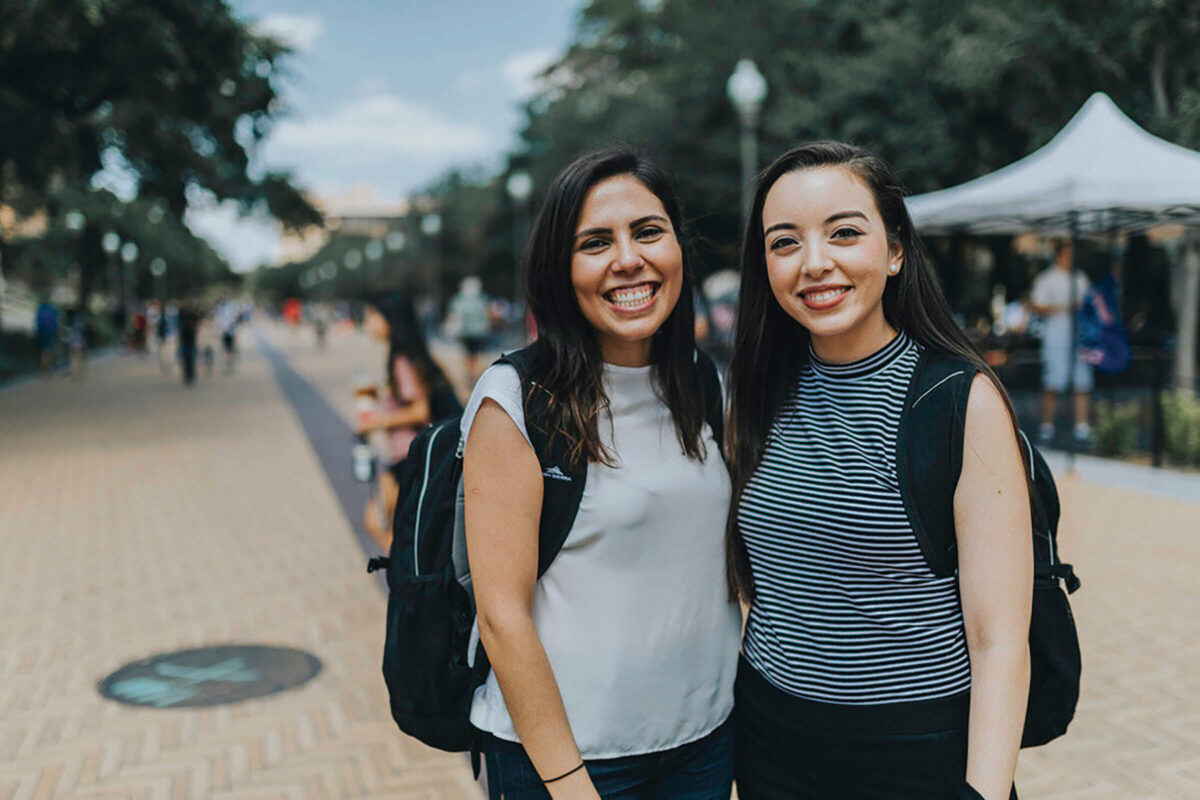
Rejection and Acceptance
Reflecting on first-generation college students navigating graduate school, Leeds says, a huge hurdle is “they have no one to guide them through the application process” and manage expectations. Tellez agrees and says the barriers for first-gen students, and especially Latinas, follow them into the job market.
“I thought, there are not a lot of people getting graduate degrees, which means when I graduate with my master’s, I’m going to have job offers
left and right,” she says. “Lo and behold, when I graduated, I had zero job offers and I had no idea what was next.”
While hunting for work, Tellez reflected on what she had accomplished. She thought about the people who had encouraged her, about inspiration,
and about what she could do.
“All I needed was one ‘yes,’ one person to believe in me and guide me. All of my experiences opened my eyes and made me realize that I could also be that person for someone else — I could be that one person who says, ‘Hey,
things are tough, but you’re tougher. You can do this. Keep going.’”
That passion to equip other Latinas with the career support and skills that shaped her led Tellez to create Mujeres on the Rise in 2019.
Tellez credits McCombs for giving her the confidence, skills, and knowledge to launch it. Her education was key to “identifying unmet
needs in the market and using that data to build something of value for people.”
While developing her company, she landed a job at Amazon as a marketing specialist and later joined Google as a product marketing manager.
Married and living with her husband in Fremont, California, Tellez works long days. She’s at Google in nearby Mountain View from 9 a.m. to 5 p.m. and from 5 to 9 p.m., she works for Mujeres on the Rise.
As a Latina in the tech field, Tellez once again is in an underrepresented group. Latino workers make up 8% of tech workers, according to 2021 figures from the Pew Center. Data from the National Center for Women and Information Technology show a greater disparity for Latina women, who made up just 1% of the computing workforce in 2017.
Tellez on the Rise
In building her business, Tellez embraced lessons from her days as a call center employee to her current job at Google. It’s her way of giving back.
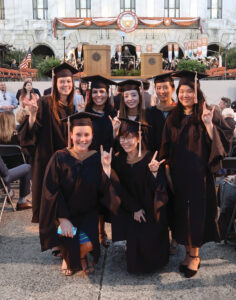
Mujeres on the Rise offers free services, including tips on improving résumés, newsletters, and podcasts; information about job opportunities;
and access to a private Facebook group. Her paid services include customized coaching.
Tellez doesn’t have employees but enlists contractors as needed. Once or twice a month, she does public speaking often focusing on “rising through adversity, the importance of representation, and how to create a life of meaning and purpose,” Tellez says.
She donates 10%-20% of proceeds to nonprofits. Tellez says about 50,000 women mostly ages 26 to 40 are part of the Mujeres on the Rise community, including 1,000 subscribers to her newsletter.
“There are women from Mexico, Spain, and the United States, and, honestly, it’s a really beautiful thing to see women coming together to ask questions, support one another, and provide resources that make us stronger,” Tellez says.
Estrella Serrato, 27, tapped Tellez’s free services during the pandemic in 2020 as a student at California State University, Stanislaus. She also is a first-generation college grad from a low-income family.
“Melba made it her mission to look over my statement-of-intent that I used to get into the school district I’m in today and move up the ladder, because I didn’t have anyone else in my circle to go through my résumé,” says Serrato, an English language resource specialist for the Riverbank Unified School District in California.
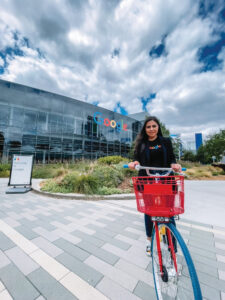
Serrato, who is applying for doctoral programs at several California universities, now is paying for coaching from Tellez, which has helped Serrato create a podcast, “Cafecito con Estrellita,” or “Coffee Chats with Estrella.” It guides first-generation scholars through their education paths, she says.
Tellez is planning her own next chapter. It’s another leap of faith, underscored, once again, by passion.
“It’s always been a dream of mine to write a book,” she says. “The best way I can give back to the community is by distilling everything that I’ve learned throughout my journey in one consolidated format in which it’s easy to find
everything you need.”
Until then, as a mentor once advised her, she’ll keep swimming.
This story appeared in the Fall 2023 issue of McCombs magazine.
About this Post
Share:
